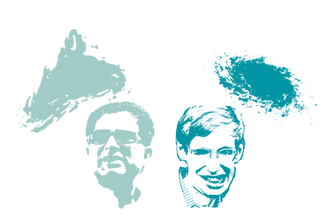Charting the path to a biologically informed system of mental illnesses
Willa Goodfellow ~ Mar '20
A moonshot exploring the human brain at single-cell resolution
Andrew Neff ~ Mar '20
Written & Illustrated by Andrew Neff
January 2019
4 minutes
Why Science Writing Isn't Skeptical



The debate over who or what is a trustworthy source rages. To a certain type, governments, teachers, doctors, scientists, and authorities of all kinds have proven time and again why they shouldn’t be trusted, they lie like crazy to promote their personal agendas. To another type, these authorities have ushered in an age where where we’re safer, healthier, and more prosperous than we’ve ever been. We don’t want to take in information from just anyone, we want credible sources, however we choose to define that word. But it’s not always so obvious who we ought to trust, and it’s not always so obvious whose voices we want speaking for science.
The current state of scientific communication is a complicated thing. While us social-media-having western-democracy-living individuals have a right to free speech, we don’t have the right to an audience. The megaphones of scientific communication, both academic journals, and popular news and writing outlets, typically maintain a strong degree of editorial control over which thoughts earn the right to amplification. And insofar as people have different access to amplification, this is a process that just isn’t democratic, maybe can’t be democratic, and maybe more importantly, shouldn’t be.
But who’s getting the megaphones today? And who has something important to say? And more importantly, does what-does-it-take-to-get-published coincide with what-does-it-take-to-have-something-important-to-say? Are the social, political, and economic incentives, or individual biases of scientific editors and publishers getting in the way a diverse discussion on current topics in science?

In the field of ecology, 70 percent of people who have published a scientific paper will only publish one paper in their career (Milojević, 2018). Most of these one-and-out scientists eventually decided to pursue an alternative career path, outside of scientific research. And if your career doesn’t involve regularly thinking about a particular issue, you probably can’t justifiably take a position, or inform the world on something ecology related. If you aren’t thinking about ecology, you probably shouldn’t be writing about it.
But there are systematic differences between the people who continue to pursue careers in science and those who don’t. Those who are unwilling to put in the hours, or unable to intellectually keep up with the work, are not going to make it in academia. For the sake of science, it’s probably best these people are excluded. But it’s possible to imagine that people choose alternative career paths not because they are unwilling or able to perform the work, but instead because they believe they’ve found something more worthwhile, or, less not-worthwhile. This group right here, who deliberately chose not to take part in science, these are the ones whose thoughts it could be very important to listen to.
Want more Brain Science in your life?
Got a dollar per month to spare?
Support Mind & Brain Illustrated today on Patreon.
Consider the calculation - maybe some of these scientist sold out, moving into industry for bigger paychecks. Or maybe they were moved by moral compulsion to enter public policy, or medical practice - something that has a more immediate impact on the welfare of those around them. But it’s possible that many of these people still feel compelled to learn some particular thing. It’s possible that their rejection of scientific practice was less about how great their alternatives were, and more about how ineffective science was at answering their personal questions. Hypothetically, they may have came to believe that they’re not going to find any satisfactory answers about their particular thing by doing research within established theoretical frameworks, and by using established experimental paradigms. It would be safe to say that these people would have developed a fairly skeptical, even cynical attitude towards their piece of science as it’s practiced.
These folks, the skeptics, and most definitely the cynics, are getting short shrift. There aren’t that many career options that allow an individual to think about science on a regular basis, and the majority of these jobs involve a research program. And a research program, at least to some extent, means accepting the value of how your type of science is practiced. And so skeptical voices are hard to come by, because it’s really difficult to have that perspective, and have a career that you believe in the value of, at the same time.

Reference
Milojevic, Staša, Filippo Radicchi, and John P. Walsh. "Changing demographics of scientific careers: The rise of the temporary workforce." Proceedings of the National Academy of Sciences 115.50 (2018): 12616-12623.





























